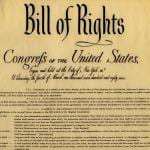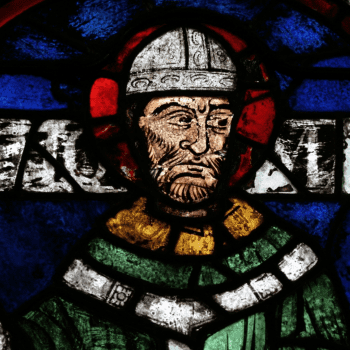Contrary to popular belief, the phrase “separation of church and state” is not written in the U.S. Constitution.
In fact, not one of the ninety founding fathers stated, argued for or against, or even referred to such a phrase when they debated for months about the specific words to use when writing the First Amendment to the Constitution.
Congressional Records from June 7 to September 25, 1789 reveal that none of these men, including Thomas Jefferson, ever used the phrase, “separation of church and state.”
One advocacy group claims, “courts have said that church-state separation IS found in the U.S. Constitution, and what the Declaration of Independence says or doesn’t say is irrelevant to legal discussions because it’s not a governance document.”
Two of the three parts of this claim are false.
The phrase, “separation of church and state” is not written in either the First or the Fourteenth Amendment. Rather, these amendments explicitly state that the U.S. Constitution prohibits the federal and state governments from nationalizing any religion, from creating a national church, and from favoring one religion over another.
Two clauses comprise the Religious Clause of the First Amendment:
- The Establishment Clause: “Congress shall make no law respecting an establishment of religion. . . .”;
- The Free Exercise Clause: “Congress shall make no law respecting an establishment of religion, or prohibiting the free exercise thereof…”.
The U.S. Supreme Court first cited the phrase, “wall of separation between church and state,” in 1947 Everson v. Board of Educ. of Ewing, 330 U.S. 1, 15-16. Thomas Jefferson wrote about the well-known concept in a letter to the Danbury Baptist Association.
While the Supreme Court did rule that a “wall of separation between church and state” exists, they did so based upon seven words from one personal letter rather than the U.S. Constitution. As a result, the Supreme Court created an erroneous precedent, ruling that laws could be created from a personal letter instead of the Constitution.
Even if a letter was a law in the United States, the Supreme Court misinterpreted what Jefferson wrote. It, like most people, make judgments about facts and/or statements by taking a text out of context, thereby redefining the original meaning of the text.
In 1802, Thomas Jefferson and the Baptists were anti-Federalists who supported state’s rights and a limited centralized government. Thomas Jefferson and James Madison were instrumental in the passage of Virginia’s Declaration of Rights in 1776 and the Virginia Statute for Religious Freedom in 1786. And both men influenced the framing and ratification of the first ten amendments, The Bill of Rights, in 1791. The impetus for the Establishment Clause, was partly due to the Virginia Statutes, which de-established the Church of England in Virginia, guaranteed freedom of religion to people of all faiths, and spurred other states to reverse laws that had implemented religious requirements.
During this time, the Baptists’ primary concern was if the government granted rights to freely express religious beliefs, it could also regulate or eliminate these rights. Jefferson shared their concern, which is why he referred to “natural rights” in his letter. This phrase was widely understood as a God-given and inherently “inalienable” right that no government could justly supersede.
The Supreme Court appears to have ignored or failed to understand Thomas Jefferson’s meaning within the context of his extensive work: The Jeffersonian Cyclopedia, Writings of Thomas Jefferson, or Memoir, Correspondence, and Miscellanies, From the Papers of Thomas Jefferson.
Jefferson made a poignant remark in Notes on the State of Virginia, which clarifies his thinking on the matter:
“And can the liberties of a nation be thought secure if we have lost the only firm basis, a conviction in the minds of the people that these liberties are the gift of God? That they are not to be violated but with His wrath?”
Why didn’t the Supreme Court choose this text for their ruling? Or his use of “natural rights” in other documents?
It is obvious that from Thomas Jefferson’s compiled work that terms like “fence” or “wall” were used within the context of describing the importance of limited government to prevent its interference with religious activities.
Thomas Jefferson intentionally used the phrases “self-evident truths” and “endowed by our Creator” when he wrote The Declaration of Independence. The founding fathers most certainly considered the Declaration of Independence as a legal document, beginning with: “IN CONGRESS, July 4, 1776. The unanimous Declaration of the thirteen united States of America;” and closing with: “We, therefore, the Representatives of the united States of America, in General Congress, Assembled…”
The Declaration of Independence is listed in the first volume of the U.S. Code under the heading Organic Laws of the United States. U.S. Code is the permanent law of the United States. “Organic” is defined as “of, relating to, or constituting the law by which a government or organization exists.”
The Organic Laws are comprised of four laws:
- The Declaration of Independence
- The Articles of Confederation
- The Northwest Ordinance of 1787 and,
- The Constitution.
When a U.S. President, a member of Congress, or a military official is sworn into office they are required to take an oath to defend the U.S. Constitution.
If the Declaration of Independence is really not a governing document, then so also would be Organic Law and the U.S. Constitution.












